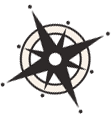Great Lakes fisheries are under stress, and new management approaches must be found to cope with these difficult challenges. The list of needed research encompasses fish biology and population dynamics, habitat and ecosystem health, toxic chemical contaminants, the potential effects of climate change, socioeconomic impacts and conflict resolution. Additionally, nurturing the growth of Wisconsin’s aquaculture industry helps provide a sustainable, domestic alternative to imported fish and seafood. Currently, more than 90 percent of the fish Americans consume is imported.
Understanding Fisheries

This document walks through the Wisconsin DNR’s goals and strategies for fisheries management and fisheries research. It contains data, context, and objectives useful for informed decision-making.
Fish Identification
Fish Consumption

Eat Wisconsin Fish is a resource that provides consumers, grocers, chefs and others with fact-based information about Wisconsin fish, fosters the livelihoods of Wisconsin’s commercial fishers and fish farmers, and supports food security, environmental health and the wellbeing of the people of Wisconsin.

This page serves as guide to safely eating the fish you catch, based on concentration of contaminants in different fish species by location. It provides infographics, language translation options, and links to further resources.
Fisheries Management

Great Lakes Indian Fish and Wildlife Commission
Great Lakes Indian Fish and Wildlife Commission
GLIFWC serves eleven Ojibwe tribes in Minnesota, Wisconsin, and Michigan who reserved hunting, fishing, and gathering rights in the 1836, 1837, 1842, and 1854 Treaties with the United States government. GLIFWC provides natural resource management expertise, conservation enforcement, legal and policy analysis, and public information services in support of the exercise of treaty rights during well-regulated, off-reservation seasons throughout the treaty-ceded territories.

The index for the Red Cliff Natural Resource Department links to the resources for fisheries and fish hatcheries that facilitate scientific management and restoration of the fishes on Reservation and in the 1842 ceded water of Lake Superior.

This is the homepage for the Mashkiiziibii Natural Resources Department, which provides technical assistance to the Bad River Tribe to help protect, conserve, develop, and manage the natural resources of the Bad River Reservation. This includes its treaty fishing waters in Lake Superior.
Fish stocking
Aquaculture

A private non-profit organization that promotes, educates, and advocates for economic vitality and environmental sustainability, interacts with government agencies, related associations, industries, and other groups, and organizes for opportunity, representation, and responsibility of each diverse and active aspect of honorable aquacultural practice, for all species, issues, activities, and sizes of operation.

The University of Wisconsin at Steven’s Point’ Northern Aquaculture Demonstration Facility (UWSP NADF) promotes public education and advances the discovery, dissemination and application of knowledge for sustainable aquaculture in a northern climate. It is equipped to provide a wide range of applied research and demonstration projects for a variety of fish species, and it offers tours and education in additional to research opportunities.

Wisconsin Sea Grant funds research that generates actionable information grounded in solid science, such as learning how to best raise certain species, understanding what consumers want to eat, developing effective marketing strategies for their products, and staying on top of environmentally responsible practices.

This resource presents a comprehensive picture of the aquaculture sector at multiple levels. The USDA collects detailed information on production methods, sources, production, sales, and more.

Advancing Great Lakes Aquaculture through Science and Collaboration
Great Lakes Aquaculture Collaborative
The Great Lakes Aquaculture Collaborative provides information, resources, and expertise to various actors involved in aquaculture, including producers, consumers, educators, policymakers, and sellers throughout the Great Lakes region.

The North Central Regional Aquaculture Center is one of five Regional Aquaculture Centers established by Congress and administered by the USDA. It serves Illinois, Indiana, Iowa, Kansas, Michigan, Minnesota, Missouri, Nebraska, North Dakota, Ohio, South Dakota, and Wisconsin.
Public access

According to the state Constitution and Public Trust Doctrine, all navigable waters are “common highways and forever free.” The Wisconsin DNR oversees the upholding of this Public Trust Doctrine, and thus provides resources and advise for those wanting to utilize these waters, provided public access is available or you have permission from the landowner to cross their property to reach the water.

A quick and useful guide to fisheries areas in Wisconsin. This resource gives a brief history of streambank protection and management, and links to fisheries areas by county so that Wisconsin residents have directions to and knowledge of nearby locations for fishing and other recreational activities.
